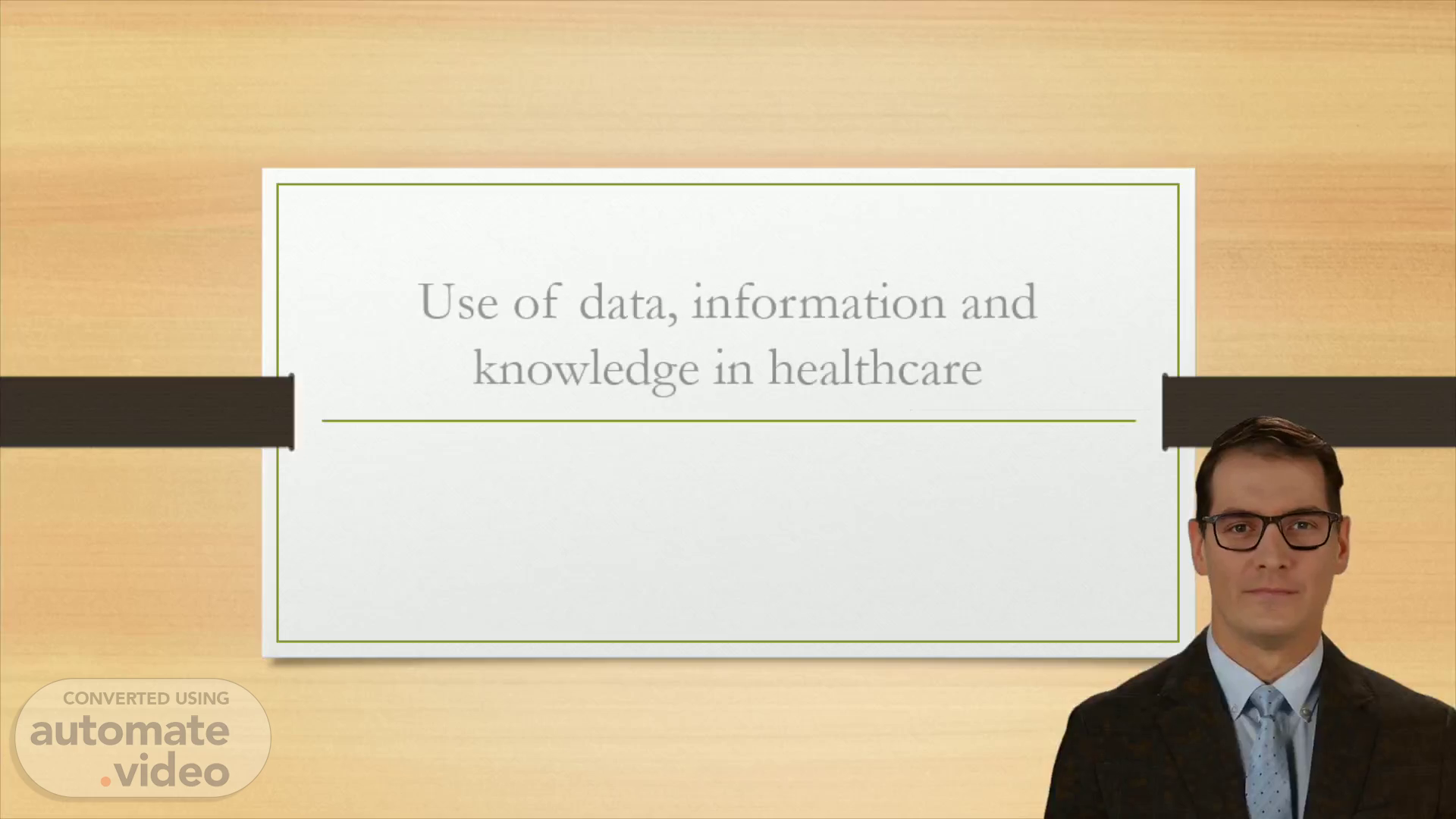
Use of data, information and knowledge in healthcare
Scene 1 (0s)
[Virtual Presenter] Good morning/afternoon everyone. Today I am here to discuss the use of data, information and knowledge in healthcare, and how it can help to make decisions and find solutions. I am sure you all can relate to the importance of this topic and that is why I am eager to present to you the research I conducted on this subject..
Scene 2 (21s)
[Audio] Data, information and knowledge are key elements in healthcare, essential for improving the delivery of care and patient outcomes. Understanding the basics of informatics and its importance is vital for the functioning of the healthcare system. Without data, one is blind and deaf in the middle of a freeway, emphasizing its conclusive role in managing, processing and retrieving information. To make sure the system works properly, it is necessary to understand the use of data, information and knowledge in healthcare..
Scene 3 (54s)
[Audio] Data is the driving force behind many aspects of healthcare. Understanding what data is and how it is used is essential. Data is a plural form of 'datum', which comes from Latin and means 'one or more symbols'. Data is created by collecting, processing and storing raw facts, and then using it to gain insight that can help healthcare providers and patients. Without data, healthcare would not be as developed or successful. Understanding the process data goes through from raw facts to knowledge and wisdom helps us to understand how to use data in healthcare..
Scene 4 (1m 31s)
[Audio] Data is not only facts and figures, it gains its purpose when it is processed and organized. In healthcare, data processing is essential to understand the requirements of the patients and provide decent treatment. It involves saving, organizing and computing the data to make it usable. After the data is organized, it is transformed into essential information which can guide the decisions of health professionals regarding the care of the patients and develop healthcare policies..
Scene 5 (2m 2s)
[Audio] Nurses and healthcare professionals need knowledge and experience to make quality decisions in healthcare. To utilize this knowledge and experience, they must be able to interpret available information and make informed decisions that are meaningful and sound. Let us now explore how this is put into use in practice..
Scene 6 (2m 23s)
[Audio] Wisdom enables nurses to make prudent decisions based on amalgamated knowledge and experience. The slide following this one details a productive air conditioning system that is an advantageous and economically sound solution for energy preservation and expenditure reduction..
Scene 7 (2m 40s)
[Audio] Data, information, knowledge and wisdom are the four cornerstones of the DIKW model. Raw data forms the basis from which useful information can be generated. This information can then be utilized to make informed decisions and create knowledge. Knowledge gives us the insight to gain wisdom and the wisdom to recognize the context of the situation and act accordingly. This is how information plays a critical role in healthcare..
Scene 8 (3m 11s)
[Audio] Exploring the DIKW model, a framework which explains how data, information, knowledge, and wisdom are related, data is the most basic form of information, structured numbers and facts collected from the world around us. Organising and contextualising data provides us with information, and processing information gives us knowledge of the world and how it works. Applying this knowledge to create understanding and make decisions is wisdom..
Scene 9 (3m 39s)
[Audio] Collecting and analyzing data, information and knowledge is essential for nursing practice, to ensure the best decisions are taken. This meta-structure allows nurses to interpret their patients' needs and make ethical and informed decisions. Thank you for your attention..